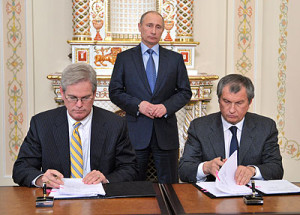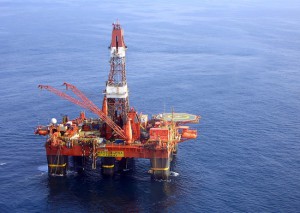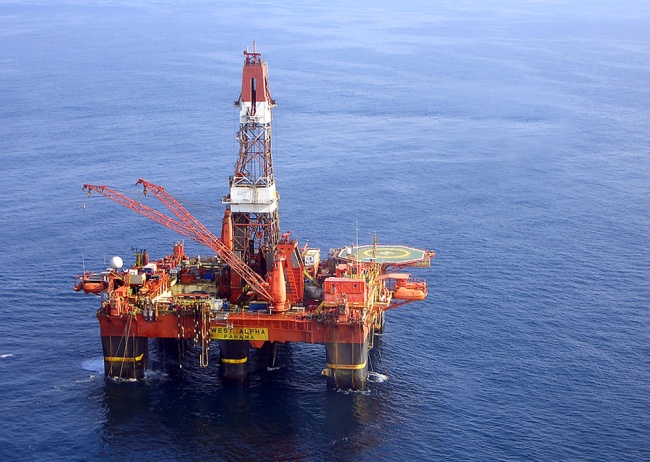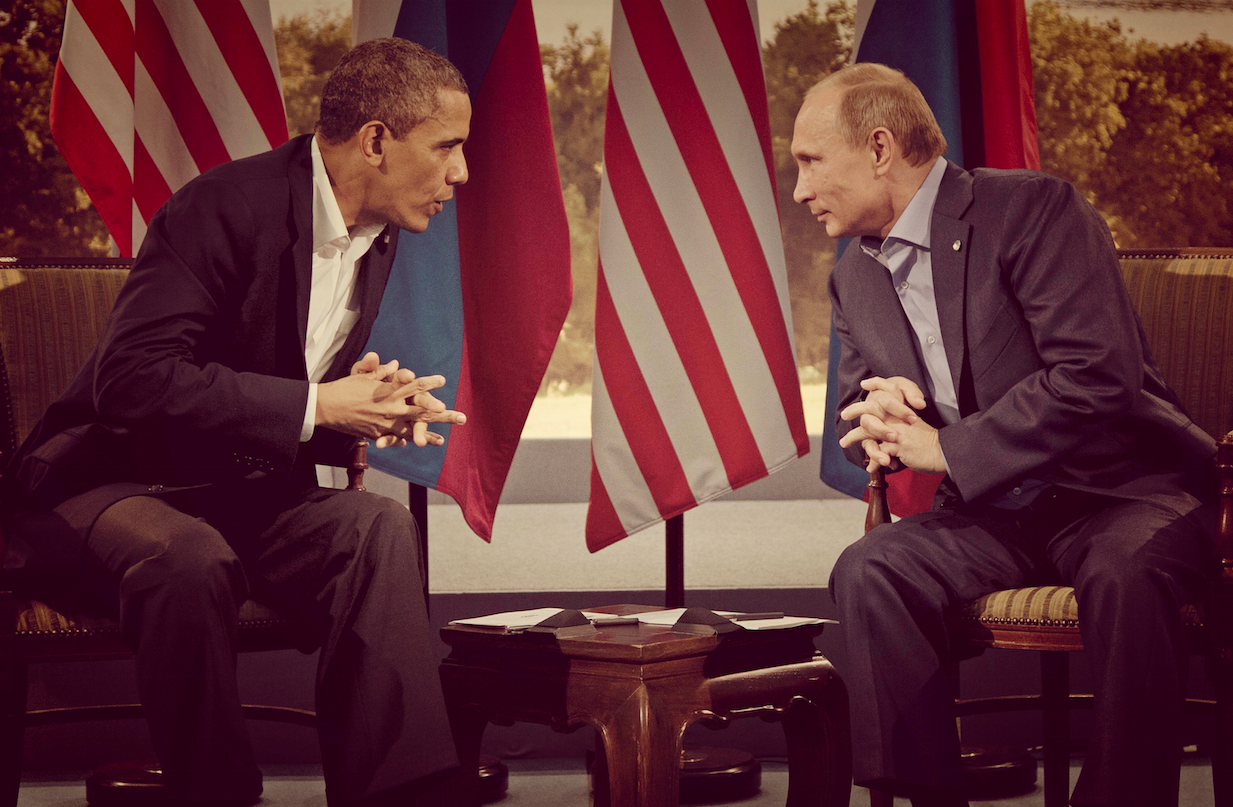On Saturday 27, 2014, Rosneft President (and American sanctioned) Igor Sechin announced that oil was found at the first well drilled in the Kara Sea, dubbed Universitetskaya-1. The tests drawn from the well suggest that the oil is comparable to Siberian Light oil, and estimates suggest that the field holds over 100 million tons of oil and 338 billion cubic metres of gas.
This project was completed in cooperation with many companies, notably ExxonMobil and Halliburton. Rosneft intends to name the field Победа or Victory, as the completion of the first well gives it the distinction of being the northern most well in the world, operating 250 km north of the Russian mainland. However, the completion of this well is just the most recent development in Russia’s Arctic oil and gas endeavours.

In 2012, Russia’s Rosneft and Norway’s Statoil signed an agreement to develop offshore deposits in the Perseyevsky field, within the Russian part of the Barents Sea. With a potential $35-40 billion in investment if the resource estimates were proven, this was a major commitment by both companies. This deal was almost a necessity for Rosneft, as the company lacked any offshore experience at the time, whereas Statoil was an industry leader.
Russian attempts at Arctic drilling have been fraught with difficulty. The Prirazlomnaya rig was towed to position in the Barents Sea in in autumn 2012, but technical challenges prevented the rig from beginning operations on time. Gazprom Neft, the owner of the rig, was unable to completely ensure the safety of its crew when operations were to begin, and as a result, the platform did not begin pumping oil until December 2013. The estimates for its 2014 production are around 300,000 tons of oil.
While there was much talk about the Prirazlomnaya rig, especially with an incident involving Greenpeace activists, the aforementioned Kara Sea project is perhaps of greater importance. On August 9, 2014, in a televised call with President Vladimir Putin, Igor Sechin, along with leaders of ExxonMobil, informed him that drilling of the Universitetskaya-1 well had begun. Putin attributed success of what was considered a practically impossible endeavour to international cooperation, adding that “We are happy to see pragmatism and common sense prevail, even despite the current difficult political conjuncture.”
Not long after drilling began, the United States and the European Union specifically targeted drilling operations in a round of sanctions imposed on Russia over the situation in Ukraine. From the Americans, such sanctions introduced on September 12, 2014, forbid the “exportation of goods, services, or technology in support of exploration or production for Russian deepwater, Arctic offshore, or shale projects that have the potential to produce oil.” Rosneft, Gazprom and its subsidiaries along with several other companies are named specifically in American sanctions. Additionally, American companies had until September 26, 2014 to wind down transactions that fell under the umbrella of these sanctions. The European Union introduced sanctions on September 11, 2014 that set the tone for the Americans, and targeted the energy industry. The Norwegians followed suit on September 23, 2014.

Such sanctions could prove problematic for Russia. First, the Prirazlomnaya rig, marred with technical problems for years, has a significant amount of western technology. Coupled with Norway’s sanctions, any repairs needed by this rig could potentially be unattainable, at least initially. Norway’s sanctions are particularly important for this project because Norwegian companies secured many contracts for equipment on the rig, with as much as 25% of all technology on Prirazlomnaya being from Norway. Gazprom Neft spokesmen have said that despite the significant portion of imported technology, everything is in good repair and the company is working towards providing domestic substitutes.
The Universitetskaya-1 well is also facing potential problems in light of the sanctions. While prior sanctions left ExxonMobil and Rosneft’s partnership in the Kara Sea unaffected, the September 12, 2014 sanctions only gave the American energy giant two weeks to cease its operations in what was the beginning of a $3.2 billion exploration agreement. In an issued statement, ExxonMobil announced that the United States Treasury Department had granted them an individual extension on this particular well, owing to the risks associated with Arctic drilling. Instead, operations were to be brought to a halt as safely and quickly as possible, and they had an additional two weeks to comply with sanctions.
Despite the extension, the end of drilling at Universitetskaya-1 means ExxonMobil needs to begin removing personnel and ceasing work with Rosneft in order to comply with the sanctions. However, Rosneft has said that ExxonMobil will be able to return once sanctions are lifted, though the direction in which future cooperation may go is unclear.
Interestingly, while Rosneft and ExxonMobil’s Kara Sea project was hit with sanctions, the wording of the American sanctions have left the American company’s Sakhalin-1 project, partnered with Gazprom, in the Pacific untouched. How the future of Russia’s international energy cooperation will unfold is, in light of the sanctions, uncertain. However, it is quite clear that operations in the Arctic are suffering significant setbacks as Russian companies still lack the expertise and technology needed to conduct these activities without foreign cooperation.




